Ready to help treat your pet to a healthy life?
The Top 10 Easiest Dog Breeds to Train
By : Brianna Gunter | Published Jun 27, 2024
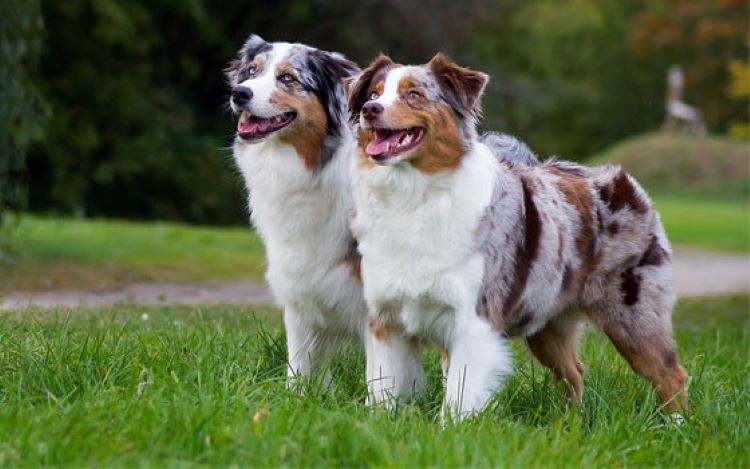
A trained dog is a safe dog, for themselves, other pets, and, of course, people. But are certain dog breeds easier to train than others?
As a pet owner, it’s important to understand that there are numerous factors that go into successful dog training. Every well-trained dog is the result of time, effort, and a lot of patience. Nevertheless, gaining better understanding of your pet’s breed and how naturally inclined they may be to picking up new skills is a good place to start. And, yes, genetics do play at least a small role.
If you’re looking for an easy dog to train, there are no guarantees. Every dog is different, and even individuals from the same litter often have different personality traits and/or levels of stubbornness. That said, there is widespread agreement that some dog breeds train easily, at least in comparison to others.
How much does breed matter for dog training?
As we just established, certain breeds take more readily to training than others. And as it turns out, this isn’t just anecdotal knowledge. One 2022 study of 18,385 dogs found that certain behavioral traits (including responsiveness to direction and commands) are indeed heritable, a.k.a. are influenced by a pup’s genetics. Even mixed-breed dogs were found to be slightly more “biddable” or responsive to human direction if they had certain ancestry in their DNA.
But here’s the caveat — breed overall was found to influence just 9% of behavioral differentiation between dogs. Environment and upbringing were found to be even more significant factors in a pup’s personality, suggesting that our role as dog owners carries even more responsibility than we may think.
10 dog breeds that train easily
Again, breed alone does not determine how easy it will be to train your dog. That said, there are certain breeds renowned for their intelligence, eagerness to learn new skills, and willingness to please their owners. When it comes to canine studies and public perceptions, these ten dogs consistently come out on top.
1. Border Collie
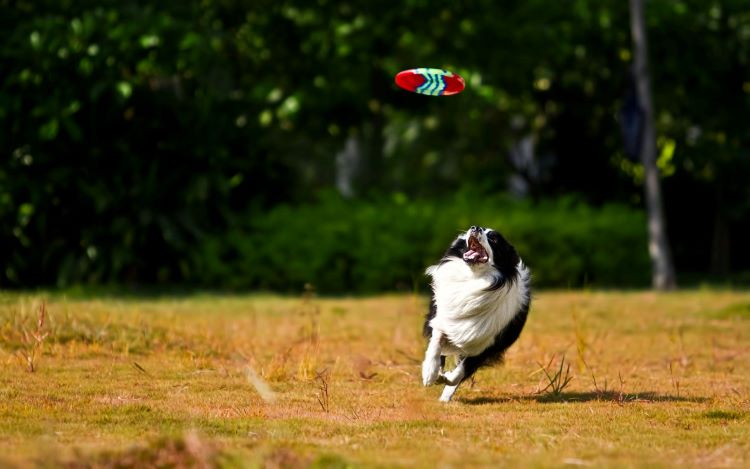
This dog is often cited as one of the most trainable and intelligent of canine breeds. But while we may never know for sure if Border Collies are the smartest dogs, one intelligence study of 13 different dog breeds showed these eager and energetic pups live up to their reputation. Border Collies in this group aced “the cylinder test,” a common animal cognition studies task that requires memory and impulse control. The breed also scored well with recognizing human gestures and were less likely than other breeds to abandon difficult tasks.
While you may not be running your own Border Collie through complex mind puzzles for science, you may want to train them to perform a variety of tasks for safety and fun. In addition to basic canine commands, these pups do well with agility training and more advanced obedience skills. If you can keep up with their high energy, this breed is easy to train and eager to learn.
2. Poodle
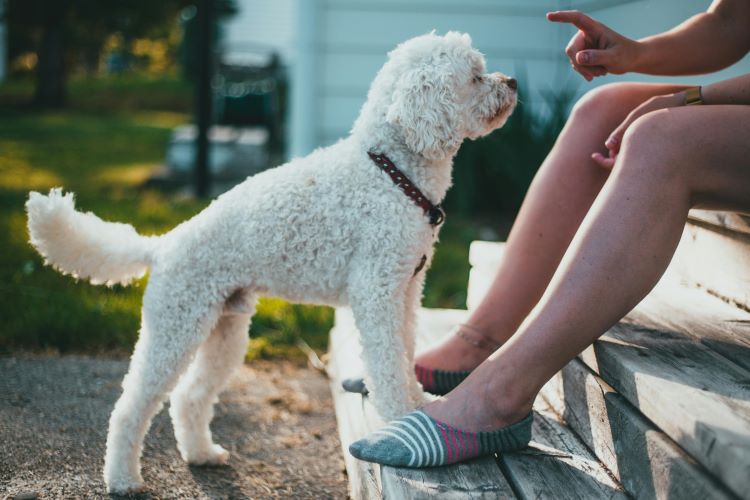
This pup isn’t just pretty to look at. As many professional dog trainers and pet owners alike will tell you, all three types of Poodle — Standard, Miniature, and Toy — tend to do well at training! These intelligent and elegant dogs also come with a high desire to please their humans, allowing them to excel at obedience training and various dog sports.
Though often not thought of as working canines, Poodles also tend to make excellent service dogs. Combined with their willingness to please, their ability to adapt to different situations and navigate tricky tasks helps them thrive as both therapeutic companions and capable assistance dogs.
3. German Shepherd
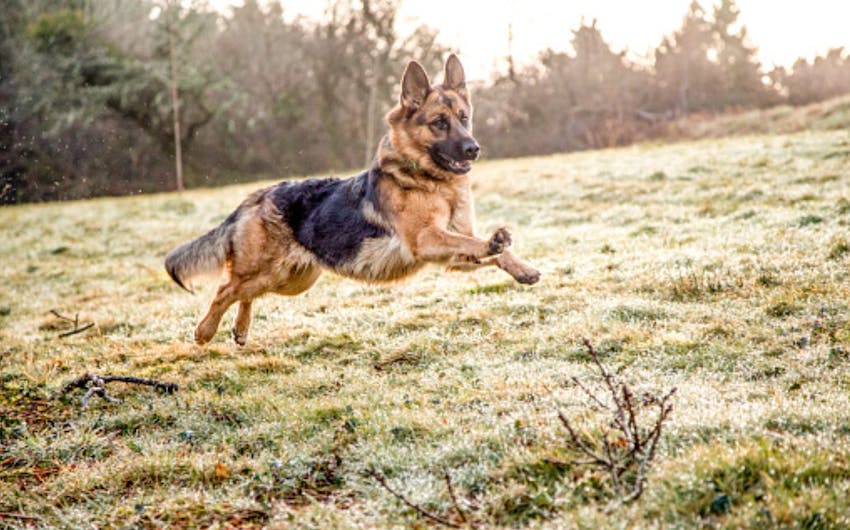
Is it any surprise that this breed made the list? Quick learners and highly versatile, German Shepherds are often used in police and military roles due to their trainability. And with proper socialization and everyday skill training, these intelligent and courageous dogs can adapt easily to life as family companions.
As trainable as they’re known to be, German Shepherds require the right kind of training to succeed. Be firm yet practical with these pups — they don’t tend to respond well to punishment, and their drive to work for reward (even if it’s just approval from their human) is much stronger than their desire to avoid negativity. Establishing a strong, positive bond with your German Shepherd is key here.
4. Golden Retriever
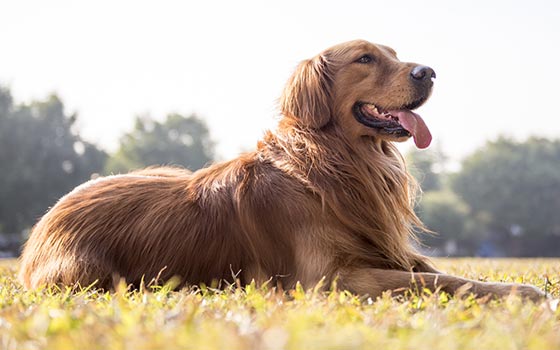
Goldens are often known for being a bit goofy, but they’re also extremely loyal to their people and eager to please. Their friendly and patient nature makes them excellent candidates for obedience training and advanced skills, such as search and rescue or therapy work.
Golden Retrievers tend to respond well to positive reinforcement methods, including treats, praise, and play. Consistent training is likewise essential to develop the breed’s hallmark well-mannered behavior. And if you do decide to sign your Golden up for more advanced training and/or service activities, be sure to protect them against accidents with a good dog insurance policy first.
5. Labrador Retriever
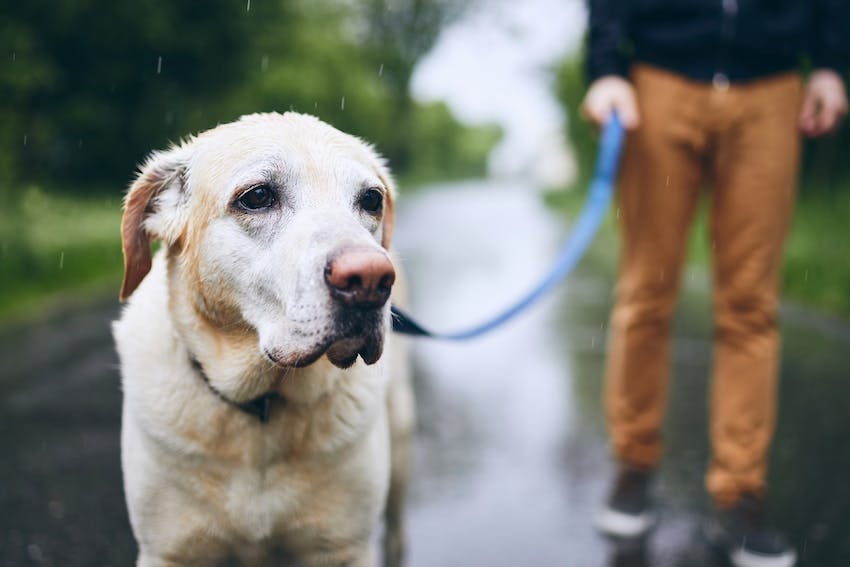
Who doesn’t love a Lab? These friendly, outgoing, and high-spirited canines make excellent companions, and it doesn’t hurt that they’re also considered one of the easier dog breeds to train. Like Golden Retrievers, they do well with obedience training and positions of service — these dogs tend to demonstrate a clear willingness to work and please.
Labs also respond best to positive reinforcement training methods and require consistency to grow into the friendly, well-mannered pups they’re destined to be.
6. Shetland Sheepdog
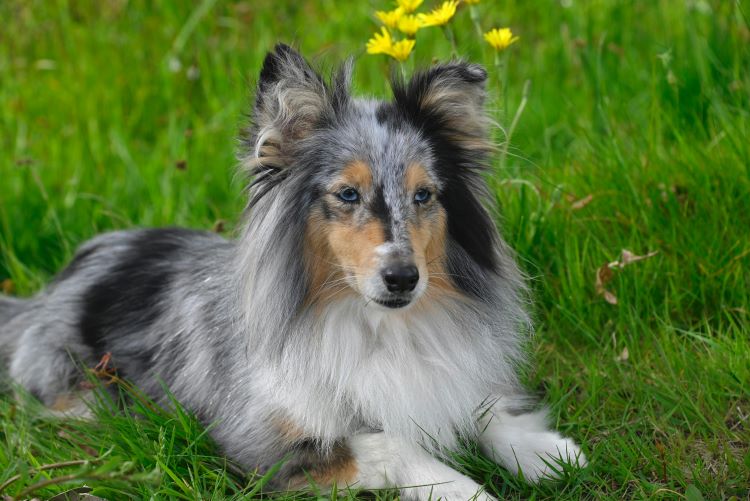
Shetland Sheepdogs or “Shelties” are highly trainable and intelligent pups, making them of course easy to train. Bred to be herding dogs, they are known for having a strong desire to please their owners and shine when it comes to agility and obedience tasks. In his seminal book The Intelligence of Dogs, famous dog researcher Stanley Coren even ranked Shelties sixth out of 132 breeds for intelligence and described their ability to learn new commands in less than five repetitions.
Like other highly trainable breeds, Shelties respond well to positive reinforcement techniques, such as treats, praise, and play. Early socialization is crucial to prevent shyness and ensure well-rounded behavior.
7. Doberman Pinscher
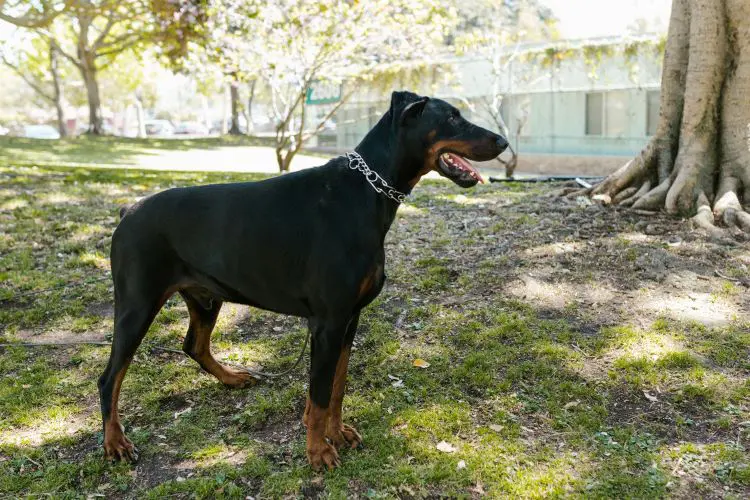
It should come as no surprise that Doberman Pinschers made this list. Loyal, intelligent, and protective, these dogs have a reputation for being responsive guard dogs. Of course, their high trainability and strong work ethic help them excel at a range of other roles as family companions and agile dog sports competitors. Dobermans have even been used in performance drill teams to showcase their intelligence and skill.
The Doberman’s loyalty to their humans facilitates effective training sessions. Positive reinforcement, including treats, praise, and consistent commands, works best with these dogs. However, it cannot be stressed enough that socialization and training are crucial to ensure safe behavior around others and to harness their protective instincts positively.
8. Papillon
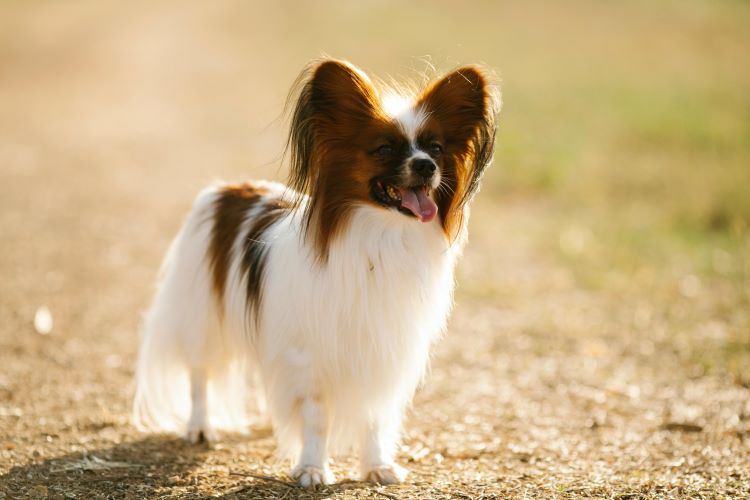
Despite their small size, Papillons are highly intelligent and excel in obedience and agility training. They tend to be friendly, alert, and very energetic, meaning they won’t get easily bored or tired during training sessions. Papillons can also learn a variety of tricks and commands, making them a surprisingly popular choice for certain dog sports (like agility). And combined with their lively personality, these adorable pups can be a delight for dedicated trainers and dog enthusiasts alike.
Consistent, positive reinforcement methods tend to work best with Papillons. Early socialization is likewise crucial to prevent “small dog syndrome” and ensure well-rounded behavior during training and throughout the years to come.
9. Australian Shepherd
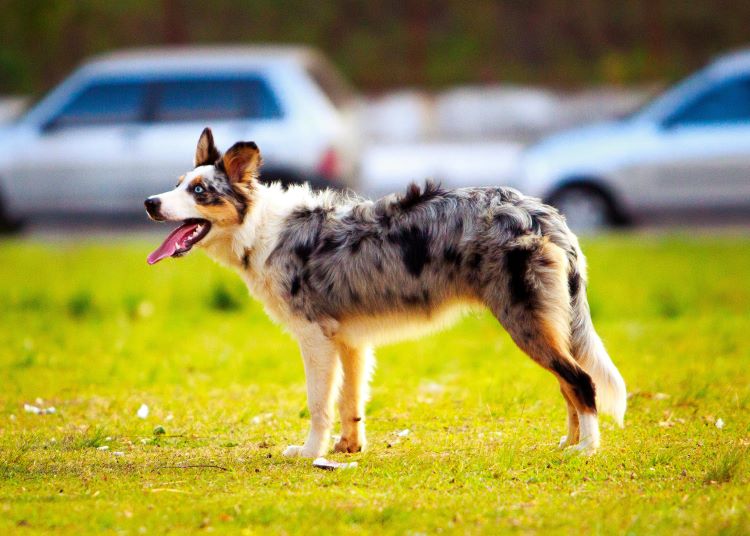
Known for their intelligence and high energy, Aussies excel with mentally stimulating activities and regular physical exercise. Activities like agility, herding, and trick training help keep them mentally and physically fit, and it usually doesn’t take long for them to catch on. Their eagerness to please and quick learning ability make these canines excellent students when provided with the right structured, interactive training sessions.
What does this mean, exactly? Try starting with basic obedience training, using treats and praise to reward desired behaviors. Like other highly trainable dogs, socialization is essential to prevent shyness in Aussies and foster balanced behavior. Use clear commands and maintain a routine to reinforce learning.
10. Rottweiler
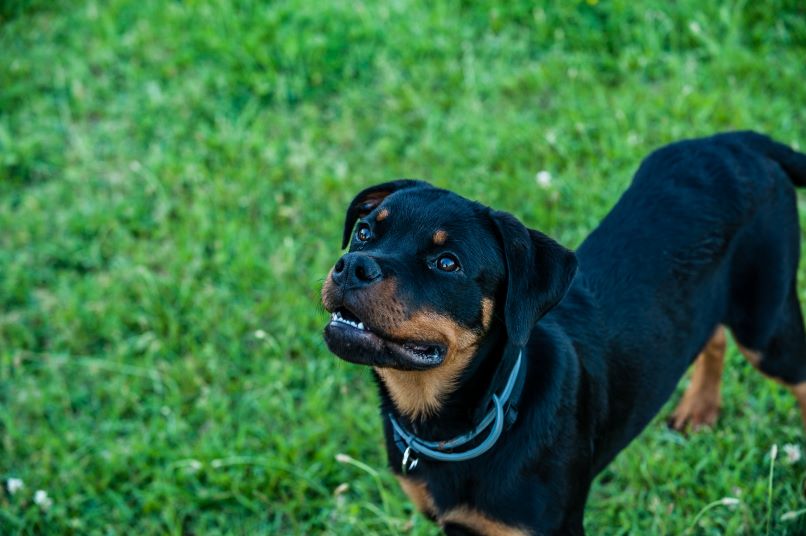
Confident and seemingly fearless, Rottweilers have a reputation for being strong, aggression-prone guard dogs. But they are also good-natured and love fulfilling their owners’ wishes. Intelligent and eager to work, Rottweilers respond well to training and are often used in working roles for good reason.
When it comes to training your own Rottie, know that they will do best with consistent, positive reinforcement. Starting early with socialization and basic obedience training is key to establishing a foundation before moving on to more complex tasks. Preventing bad behavior early on will help these dogs flourish into awesome, reliable companions.
Don’t let breed inhibit dog training
Don’t have one of the top trainable dog breeds? That’s okay! Every dog benefits from proper training. Whether you have one of the aforementioned breeds or not should not dictate whether you teach them to respond to commands and act in a proper manner around others. It’s not about having a dog who can do a lot of neat tricks — instilling at least basic command training in your pet is as important for their safety as it is for everyone they may interact with.
Not sure where to start? Check out these five types of puppy training every dog should have.
